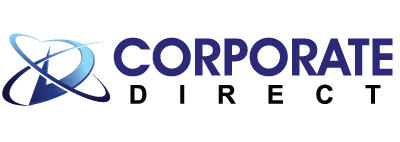Foreign Investors
Corporate Direct, Inc. works with foreign individuals, trusts and companies that want to invest in the United States. The U.S. is a big market with many opportunities. Our doors are open for foreign investors.
In most cases, the entity you use to protect your U.S. assets will be determined by your home country’s tax system. For example, Canadians find that U.S. limited partnerships and C-Corporations (versus LLCs) work best and match up well with Canada’s tax system. On the other hand, Australians use U.S. LLCs when investing their Superannuation Funds (retirement monies) into American real estate.
The key is to work with your local accountant to determine which is the best way, given your home country’s tax regime, to invest in the U.S. We will follow their lead and set up the correct protective entity here in America. Or we can refer you to a U.S. accountant specializing in cross border taxation for your benefit.
While foreign individuals, trusts and companies are free to invest in U.S. assets, given that we are a litigious society, an entity (be it an LLC, LP or even a C Corporation) is always suggested. Owning assets in your individual name can lead to unlimited personal liability so it is important to set up the right U.S. entity for protection of your American assets.
Corporate Direct will work with you and your advisors to set up the right entity. We can also refer you to experienced chartered accountants to assist you with U.S. tax filings. When compared with other providers and all the services we include, our formation fees are very affordable. For $795 (plus state filing fees) we will provide you with a complete LLC and/or corporate formation including all necessary governing documents so you may properly operate in the United States.
Quick Comparison Chart of US Entities

Can Foreign Individuals own American LLCs?
Yes, while foreign individuals cannot be owners of S Corporations, they most certainly can be owners of an LLC, C Corporation or a Limited Partnership. In fact, most investors from outside the United States utilize the LLC for their real estate investments.
Is a separate LLC required for each property or asset?
Why do investors prefer Wyoming over Nevada?
What is the best entity for real estate investors?
In general, the best entity for both U.S. and foreign real estate investors is the Limited Liability Company (or LLC). The LLC offers the benefits of both asset protection and flow through taxation. LLCs are affordable to set up and maintain and are the entity of choice for real estate investors. In some cases, Canadians will use an LLC taxed as a C Corporation to match up U.S. taxation with Canadian taxation. Again, it’s worth consulting your home country’s accountant to ensure you comply with your local tax system.
Can you provide a 100% asset protection guarantee?
How do I obtain an ITIN?
If you prefer to file for an ITIN with the IRS directly you will find the proper forms and information to do so at IRS.gov.
How long does it take to set up an LLC?
Once you pay your formation fee and complete our LLC checklist, you will be put in the queue for formation. Your entity will be up and running and documents will be completed within 30 days. We offer expedited service for an additional fee.
How do I set up a US bank account?
Can I set up a US management company to manage my US LLCs and LPs?
Is it better to be Manager Managed or Member Managed?
Can you provide privacy?
Filing requirements as of January 1, 2017 for foreign owners of a single member US LLC:
Foreign owners of a single member U.S. LLC must file a new form with the U.S. government beginning on or after January 1, 2017. Disregarded entities for tax purposes (including single member LLCs) wholly owned by foreign persons must file a Form 5472 with the Internal Revenue Service (IRS).
Previously, foreign owners did not have to report their U.S. activities. However, with the release of the Panama Papers, increased scrutiny towards foreign ownership of U.S. assets has arisen.
It is important to know that the rules only create informational reporting obligations. Filing Form 5472 does not in and of itself create a U.S. federal income tax liability for the foreign owner based on their entity’s activities in the U.S. But it may lead to such taxation. As always, it is strongly recommended that clients work with accountants and tax advisors experienced in both the U.S. and their home country tax systems.
Many IRS filings are subject to de minimis exceptions, meaning when the amount involved is small enough you don’t have to file. Interestingly, no such exception applies to Form 5472. Even if the amount is ten cents you have to file. The IRS clearly wants to know what is going on.
Their interest is evidenced by the penalties. Failure to file a Form 5472 for each entity results in an initial penalty of $10,000 per entity. After 90 days the penalty is increased by $10,000 for each 30 day period in which the filing is not made.
These significant penalties call for you to discuss the filing of Form 5472 with your advisor. The IRS will not send you a notice that the form must be filed. (Chances are they are not even aware of your entity yet.) Please be proactive with your advisors to avoid any problems and penalties.

